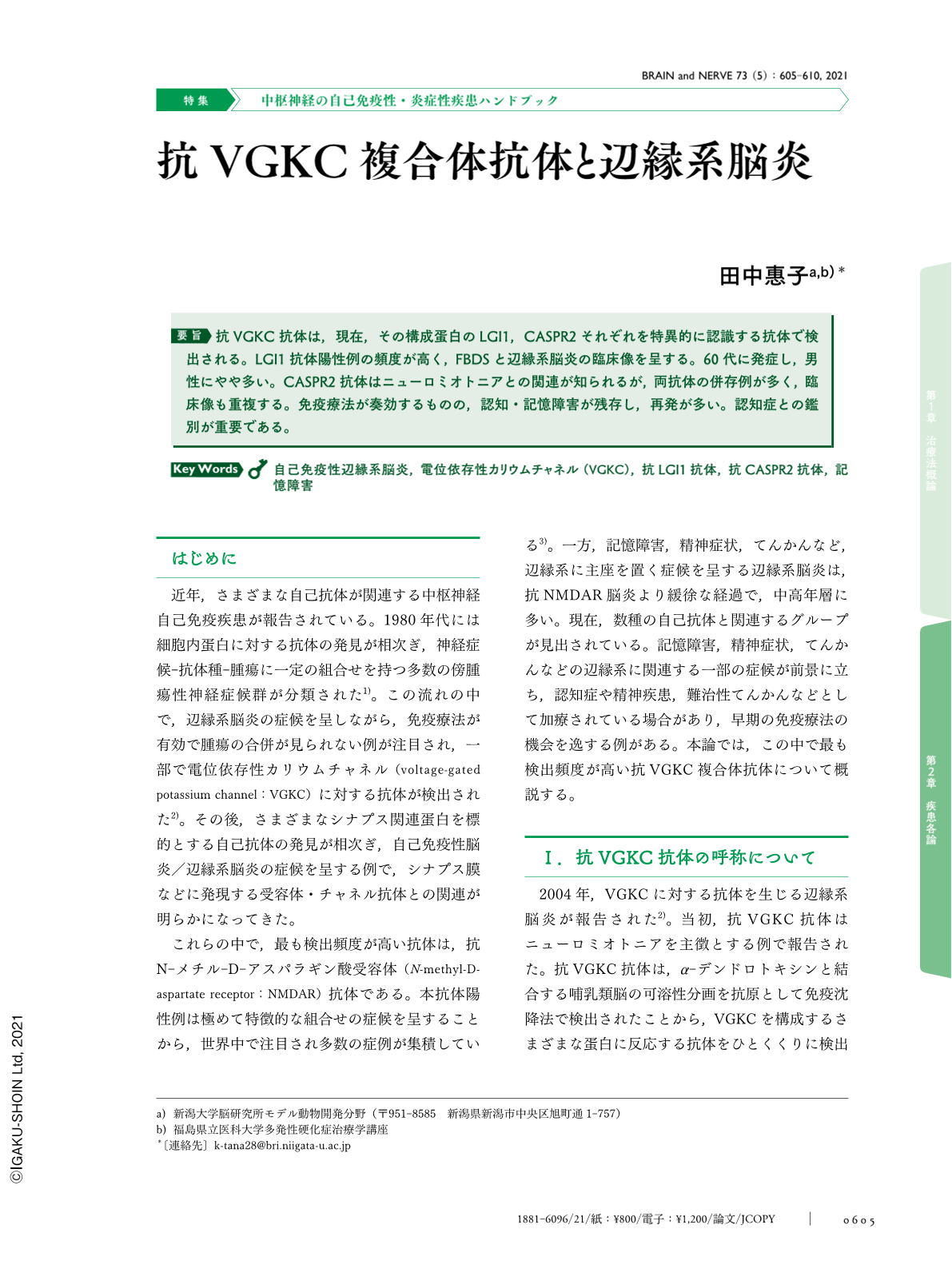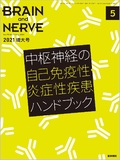Japanese
English
- 有料閲覧
- Abstract 文献概要
- 1ページ目 Look Inside
- 参考文献 Reference
抗VGKC抗体は,現在,その構成蛋白のLGI1,CASPR2それぞれを特異的に認識する抗体で検出される。LGI1抗体陽性例の頻度が高く,FBDSと辺縁系脳炎の臨床像を呈する。60代に発症し,男性にやや多い。CASPR2抗体はニューロミオトニアとの関連が知られるが,両抗体の併存例が多く,臨床像も重複する。免疫療法が奏効するものの,認知・記憶障害が残存し,再発が多い。認知症との鑑別が重要である。
Abstract
Anti-voltage-gated potassium channel (VGKC) antibodies are now understood to be antibodies against associated proteins leucine-rich glioma-inactivated 1 (LGI1) and contactin-associated protein-like 2 (CASPR2) and are detected using a cell-based assay. Anti-LGI1 or anti-CASPR2 antibody-positive patients present characteristics of limbic encephalitis, which is usually seen in middle-aged men and women who present with mainly amnesia and seizures. Faciobrachial dystonic seizures are seen specifically in LGI1 antibody-positive patients, and neuromyotonia is predominantly seen in CASPR2 antibody-positive patients. Both groups of patients greatly improve with immunotherapy; however, amnesia tends to last a long time and some patents experience a relapse. Some patients with limbic encephalitis present with only memory disturbance or seizures, and some are diagnosed with degenerative dementia or chronic epilepsy, suggesting the importance of early autoantibody testing for a diagnosis.

Copyright © 2021, Igaku-Shoin Ltd. All rights reserved.


